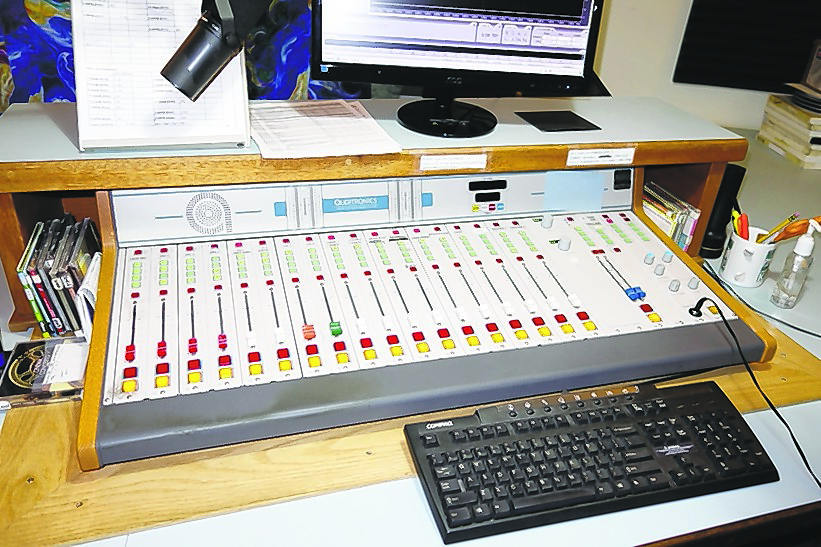“Oldies” are a popular radio staple. But that’s for music, not for infrastructure.
The southern Kenai Peninsula’s public radio station, KBBI, is scrambling to pay for two new audio consoles vital to its broadcasting system. If the old ones conk out before the money comes through, the station could be forced off the air.
KBBI faces the unfortunate conjunction of major funding cuts and the imminent death of its master control boards. To fill the breach, the station has launched a funding drive online via the site Indiegogo. The goal is to raise $12,000 by the end of the month.
The current consoles were purchased in 2002, using grant funding no longer available. The old consoles are analog, so they don’t interface well with newer digital peripherals. They are so obsolete that the station can no longer buy replacement parts when pieces break.
“It was time,” said Dave Anderson, the station’s general manager.
The audio consoles are vital. Seven days a week, 24 hours a day, they take in signals from diverse sources such as emergency alerts, the studio microphones, CD players, vinyl turn tables, call-in telephone lines, satellite transmissions of national programming and remote feeds (such as city council and borough assembly). They allow newscasters and DJs to standardize volume, switch among sources and seamlessly flow the programming onto the airwaves.
New equipment will reduce glitches, improve sound quality and simplify operation. Technology has made huge strides in the years since the old units were installed. For example, the upgrade would reduce the number of cables on the consoles from 50 to five. New consoles are a long-term investment, Anderson said.
“It’s really a leap into the future for us,” he said.
The original plan to replace the equipment changed when oil prices fell and the state budget imploded. Although the state only provides part of public radio’s funding, KBBI’s share of the cuts chopped $30,500 from its budget. The cuts also mean that Alaska Public Broadcasting can only contribute labor costs associated with the replacement project, estimated at $6,000, if the work is done by the end of the summer, according to a statement from KBBI.
Station staffers already have detailed plans for the changeover. They plan to purchase two new Wheatstone audio consoles. One will be for the on-air studio and the other for producing audio segments. The estimated total price for the equipment, shipping, installation and required peripheral devices is $52,000.
The station has received two grants that keep the project within reach: $25,000 from the Rasmuson Foundation and $5,000 from the Homer Foundation. If it can raise the $12,000, it can scrape up the difference and proceed with the project, Anderson said.
Rose Grech, KBBI’s development director, set up the Indiegogo fund raiser. The venture into social media crowdfunding is new for the station. Going online means the station staff and volunteers don’t have to set up phone banks or process the payments themselves. It also allows KBBI to leverage the Internet’s multimedia potential.
KBBI boosters produced a humorous video to plead their cause, titled “Homer is under attack by Godzilla.” It is posted on the Indiegogo page and generating a lot of positive feedback, Anderson said.
Information, the video and donation options are linked to the station’s main web page at www.kbbi.org (click on the right side) or directly on the Indiegogo site at https://www.indiegogo.com/projects/keep-kbbi-on-the-air-literally#/story. Like the traditional pledge drive, KBBI still offers perks for donors.
“This is our first attempt at this,” Anderson said. “The video has really added a quirky element to the campaign — and entertaining, too.”
Keep KBBI on the air
Indiegogo campaign
goal: $12,000
deadline: June 30
RAISED BY WEDNESDAY
MORNING: $8,679
TO HELP:
Go to KBBI’s main web page at www.kbbi.org and click on the link at the right.
Shana Loshbaugh is a writer who lives on the southern Kenai Peninsula.


